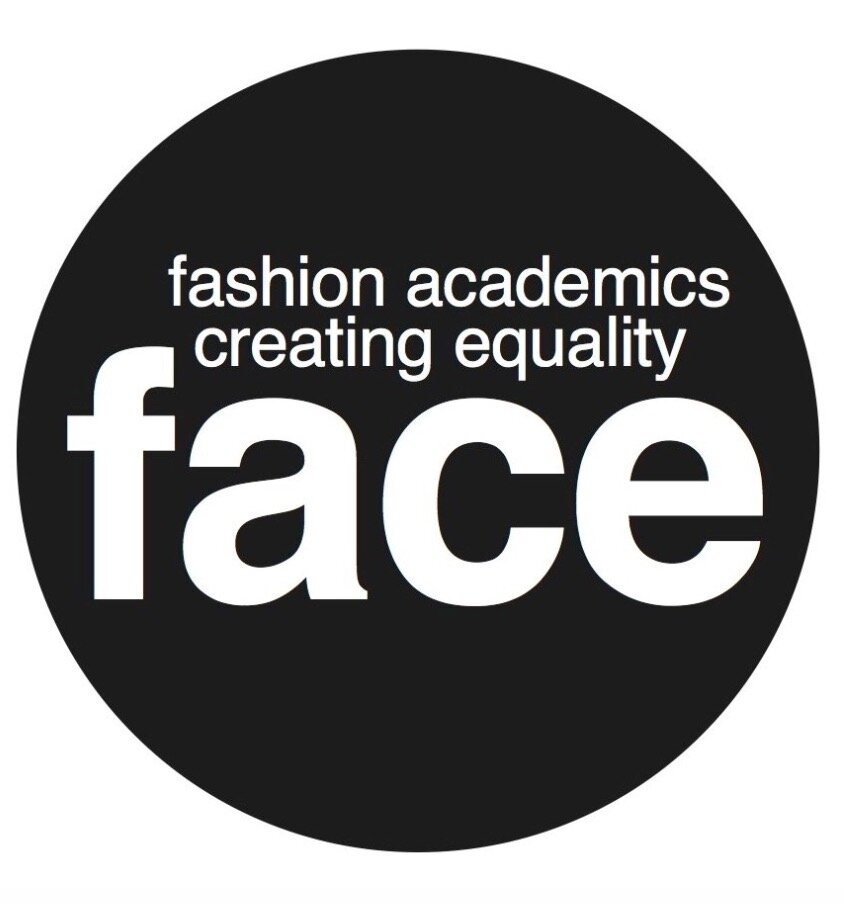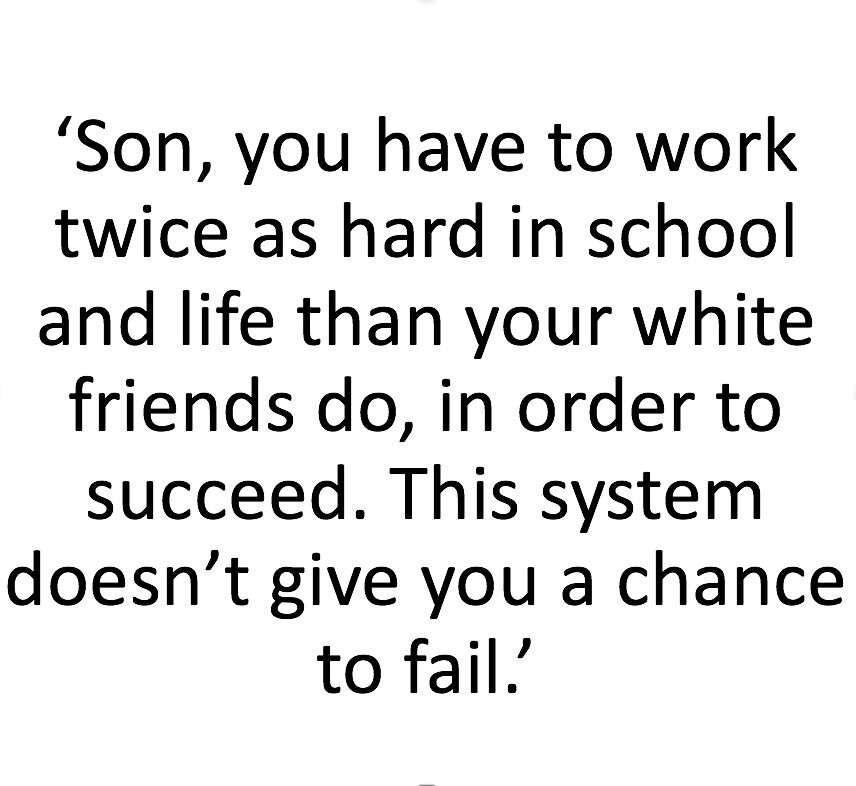Face Community CRT
Our Friday FACE Community events are open to everyone via Eventbrite and offer a vital opportunity to openly discuss issues concerning race, colour and ethnicity in FE and HE. All are welcome and sharing the knowledge and language is what we do.
This month Critical Race Theory (CRT). Do we understand what it is and its implications for fashion educators and learning communities? Come and learn with us.
FACE Community gathered a mixed audience of 60 guests through Eventbrite for a presentation by FACE members Nick Dunn and Lorraine Henry King who asked…
Do we feel debate and discussions on CRT and structural inequality are valid and rewarding topics within fashion education in the UK?
Members shared personal stories to educate on the reality of privilege, ignorance and why CRT is a vital lens through which to view race.
“CRT is the view that the law and legal institutions are inherently racist and that race itself, instead of being biologically grounded and natural, is a socially constructed concept that is used by white people to further their economic and political interests at the expense of people of colour.
According to CRT, racial inequality emerges from the social, economic, and legal differences that white people create between “races” to maintain elite white interests in labour markets and politics, giving rise to poverty and criminality in many minority communities. The CRT movement officially organised itself in 1989, at the first annual Workshop on Critical Race Theory, though its intellectual origins go back much further, to the 1960s and ’70s. Critical race theory (CRT) is a scholarly tradition that argues against the slow pace of racial reform in the United States. CRT begins with the notion that racism is normal in American society.”
Tommy Curry, Associate Professor of Philosophy at Texas A&M University.This is a very common, pivotal discussion between parents and children from ethnic minority backgrounds in the UK
Below is a small selection of member comments. Join us next time to listen or add yours why doncha?
PM: I think every single black kid has been told that he or she has to work harder. It was a given from a very early age that things - and in things - I mean systems, were very biased. Both implicitly and explicitly
MO: It’s still relevant now as it was when I was a child, many moons ago.
HJC: I wish it wasn’t a conversation that still had to be had. But until the system is changed and structural inequalities are dismantled, I’m sorry to say that these discussions with children of colour will continue.
PM: Agreed. I have to tell my children still.
JAD: A student of mine was told by another black designer that she shouldn’t expect any success because ‘BLACK WOMEN DO NOT SUCCEED IN FASHION’. Beyond disgusting!
IN: Both my parents are from Asian, south Asian communities. I was told by both of them in order to succeed in society I had to network with white and Jewish communities.
MO: My sisters and I had to change schools as the head at the local comp insisted that CSE exams were a stepping-stone to O’levels. This was always suggested to the parents of the Black students.
MK: Even though conversations are had at home in black families, society consistently tells you that you have to work harder through written, unwritten codes and also not seeing a reflection of yourself whilst existing in white spaces. Furthermore the lack of inclusion and understanding ‘black trauma’ within educational and work spaces leads to an uphill climb and somewhat echo chamber within predominantly white castles, such as education.
CRT explores issues that effect Black, Asian, Latino and Brown people. These include…
CRT is spreading to other countries and other fields such as…
Sociology |
Education |
Philosophy |
Religion
CF: Black people have to experience limited selfhood and its effect as a reality daily. But because white people can’t cope with the reality of their privilege, unearned status and their expansive identity capital, racism continues
M: Dismantling racism is about more than just declaring how very much you are against it; it requires that white people actively redistribute the power they have. If white people are not invested in decentralising whiteness in positions of privilege and dominance, then we aren’t going far
MK: It is simply about representation within the different spheres of influence … so that marginalised communities are empowered… even in higher education there is a white narrative that you have to write in that a white English speaking person who understands those codes has an advantage. Unfortunately most lusted upon graduate job applications require you to be from Russell Group university therefore creating further barriers.
“We do not want teachers to teach their white pupils about white privilege and inherited racial guilt,” warned the equalities minister, Kemi Badenoch, at the end of a six-hour debate to mark Black History Month. “Any school which teaches these elements of critical race theory, or which promotes partisan political views such as defunding the police without offering a balanced treatment of opposing views, is breaking the law.”
EL: Race discussion is so incredibly complex so I’m really happy to see box labels like BAME being dismantled. A week in as a new AL at UAL I challenged the surprising lack of diversity in both students and staff, and a month in I’m still bringing it up with my seniors. The info on CRT is so useful to take back to my team, thank you.
SL: We naturally all have 2 discussion within our heads as we navigate white spaces. One we have for ourselves, and then there is the edited version that is more palatable for the people in the room. It is exhausting having to think for others in case they are ‘offended’.
MG: As a white person I am conscious of my decades of ’privilege’ and wonder how to best address that, without any sense of appearing to be ‘patronising’ or any sense of ‘tokenism’.
I have a natural caution, wanting to be respectful of Black concerns, but looking for genuine practical ways to be a part of solution not the problem. Being positive, avoiding criticism of ‘positive discrimination’… there’s so much ground to make up.
M: The responsibility of dismantling systemic racism must not be placed solely on Black people by asking them to fully lead diversity and anti-racism efforts. Black people did not create these problems, so please do not expect us to resolve them alone. Take responsibility for your own education on racial issues. Keep in mind that Black people had to use their free time to learn about other races, given that the educational curriculum only taught a minimal amount of Black history
FACE would like to thank everyone who attended, and we have supplied MG and others who asked with a reading list and an invitation to return for out next FACE Community event.
In light of government minister Kemi Badenoch’s statements for the UK Government targeting Critical Race Theory as an ideology we can’t help wondering whether this is another way to block challenge to structural inequality?
See government minister Kemi Badenoch discussing Critical Race Theory here




